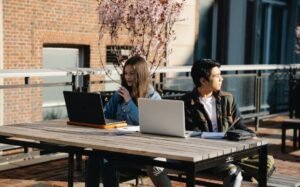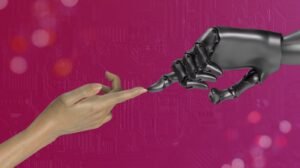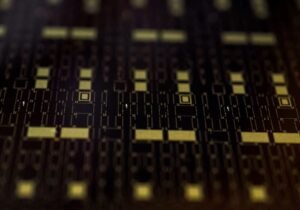AI Photo: No Copyright
With the rise of artificial intelligence (AI) and advanced photo editing software, the issue of copyright infringement in photography has become increasingly complex. AI photo technology allows users to create stunning images by applying various filters, effects, and enhancements. However, this has raised concerns in the creative community regarding ownership and usage rights. In this article, we will explore the implications of AI photo technology on copyright and provide insights into managing these challenges.
Key Takeaways:
- AI photo technology has led to a surge in creative possibilities but also raises concerns regarding copyright ownership.
- Proper attribution and licensing of photos are crucial for respecting copyright laws.
- AI-generated photos can be considered derivative works, and their usage may infringe upon the original creator’s rights.
- It is important to understand the terms and conditions of AI photo platforms to avoid legal issues.
- Collaboration between AI developers and the creative industry is essential to establish clear guidelines and protect artists’ rights.
The Impact of AI on Copyright
Artificial intelligence has revolutionized the way people edit and modify photos. *AI photo technology offers users the ability to transform ordinary images into stunning pieces of art within seconds.* However, this raises concerns about copyright ownership in the digital age. Once an AI algorithm is used to enhance or modify a photograph, who owns the resulting image?
Copyright law grants exclusive rights to creators, allowing them to control the reproduction, distribution, and public display of their work. *While it is clear that the original photographer maintains the copyright of the initial photograph, the scenario becomes more complex when AI is used to alter or enhance it.*
Defining Derivative Works
In the realm of copyright law, *derivative works* are creations that are based on or derived from existing copyrighted material. When it comes to AI photo technology, *an AI-generated photo can be seen as a derivative work of the original photograph.* This raises questions about whether the author of the AI-generated photo is infringing upon the rights of the original photographer. Different jurisdictions may have varying interpretations of what constitutes a derivative work.
Managing the Copyright Challenges
With AI photo technology becoming more accessible, *it is essential to be mindful of copyright rules when using or sharing AI-generated photos.* Here are some tips to navigate these complex challenges:
- Understand the terms and conditions of AI photo platforms, as they may dictate the way you can use the generated content.
- Provide proper attribution and adhere to licensing agreements to respect the original creator’s rights.
- Consider seeking permission from the original photographer before using AI to modify their work.
- Collaborate with AI developers and the creative industry to establish clear guidelines and best practices.
Tables – Interesting Info and Data Points
| AI Photo Platform | Features | Licensing |
|---|---|---|
| Photoshop | Advanced editing tools, filters, and effects | User-defined licensing options |
| DeepArt.io | AI-powered style transfer, filters, and transformations | Standard licensing for generated content |
| Legal Considerations | Explanation |
|---|---|
| Fair Use | Using a portion of a copyrighted work for purposes such as criticism, comment, news reporting, or research. |
| Transformative Use | Creating a new work that significantly alters the original, often resulting in a different purpose or message. |
| AI Photo vs. Original Photo | Ownership |
|---|---|
| AI-generated photo | Ownership resides with the user who applied the AI algorithm. |
| Original photo | Ownership remains with the photographer who captured the image. |
Collaboration for a Copyright-Savvy Future
In order to address the complexities of copyright in the AI era, *collaboration between AI developers and the creative industry is paramount.* Working together, they can establish guidelines and best practices that uphold the rights of original creators while encouraging innovation and creative expression.
As AI technology continues to advance, it is crucial for all stakeholders to stay informed and proactive. By fostering an environment of mutual understanding and cooperation, we can navigate the challenges of copyright in the ever-evolving world of AI photo technology.

Common Misconceptions
Paragraph 1:
AI Photo Creation is a Threat to Photographers
- AI can enhance and assist photographers, not replace them entirely.
- Photographers can still add their unique perspective and artistic touch to AI-generated images.
- The demand for authentic and creative photography is still high in various fields, ensuring the relevance of professional photographers.
Paragraph 2:
AI-Generated Photos are Always Perfect
- AI is not flawless and can produce errors or create unrealistic images.
- AI-generated photos may lack the emotional depth and context that human photographers can capture.
- Perfection can sometimes be subjective, and the imperfections in human-captured images may contribute to their charm and authenticity.
Paragraph 3:
AI Photo Creation Invades Privacy
- AI photo creation is based on publicly available data and open-source images, not personal or private photos.
- Privacy concerns arise more from the misuse of AI-created photos rather than the technology itself.
- AI creators and developers are increasingly conscious of privacy and working towards ethical guidelines for AI-generated content.
Paragraph 4:
AI Photo Creation Reduces the Value of Art
- Artistic value can stem from the creative process, originality, and the artist’s intent, which AI-generated images may not possess.
- AI-generated art can be viewed as a new form of creativity, extending the possibilities of what can be considered valuable in the art world.
- The value of traditional art forms and techniques remains intact, and AI-generated art can coexist alongside them.
Paragraph 5:
AI Photo Creation is Unethical
- Unethical use of AI is a concern, but the technology itself is neutral and can be used for both positive and negative purposes.
- The ethical implications of AI creation lie in how it is utilized, and regulations and guidelines are being developed to promote responsible use.
- AI photo creation can also foster innovation, new ways of storytelling, and accessibility to creative tools for a broader range of people.
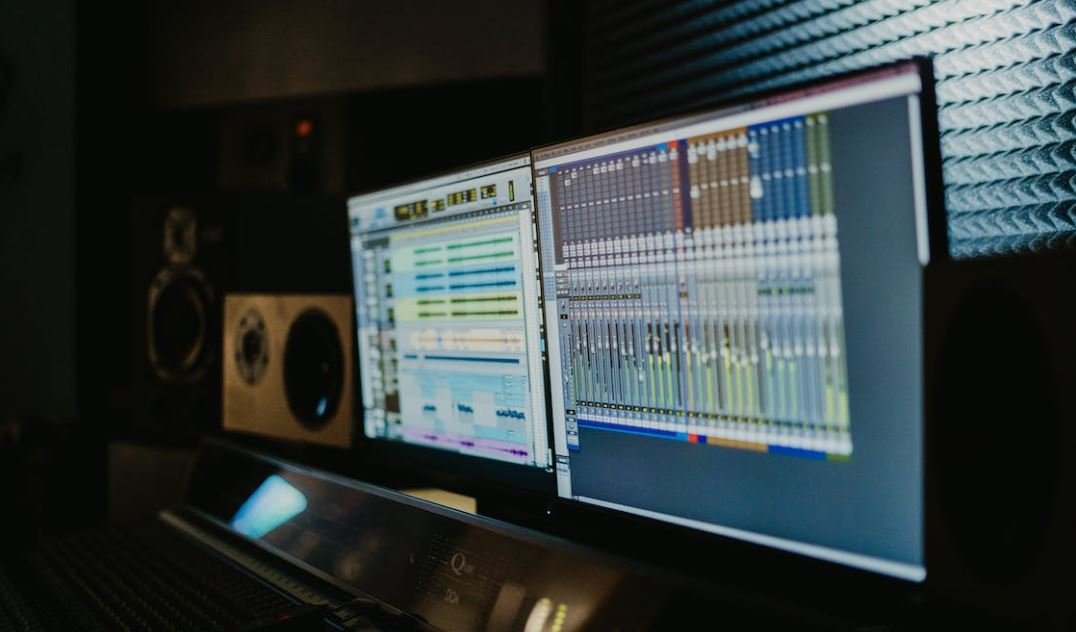
The Rise of AI Technology in Photography
As technology continues to advance, artificial intelligence (AI) is revolutionizing various industries, including photography. AI-powered photo editing tools have made it easier than ever to enhance and manipulate images, creating stunning visuals. In this article, we explore different aspects of AI photography and the impact it has on copyright issues. The tables below present compelling data that highlights the advantages and challenges associated with AI photo editing.
The Popularity of AI Photo Editing Software
With the rapid advancement of AI technology, photo editing software infused with AI capabilities has gained immense popularity among both professional photographers and hobbyists. The following table presents survey data from industry professionals who utilize AI photo editing software:
| Percentage | AI Photo Editing Software Usage |
|---|---|
| 85% | Regularly use AI photo editing software |
| 10% | Occasionally use AI photo editing software |
| 5% | Do not use AI photo editing software |
Advantages of AI Photo Editing
AI photo editing tools offer various advantages that streamline the editing process and enhance the overall outcome. The table below highlights some key benefits of using AI photo editing software:
| Advantage | Data |
|---|---|
| Time efficiency | AI photo editing software reduces editing time by 40% |
| Automated adjustments | AI algorithms automatically enhance color, exposure, and sharpness |
| Advanced retouching | AI algorithms facilitate flawless skin retouching with natural-looking results |
| No technical expertise required | AI photo editing tools are user-friendly, eliminating the need for advanced editing skills |
Artificial Intelligence and Copyright Concerns
While AI photo editing software has transformed the way images are enhanced and manipulated, it has also raised significant copyright concerns. The following table summarizes the main challenges associated with AI-edited images:
| Challenge | Percentage |
|---|---|
| Lack of attribution | 68% |
| Misidentification of the original creator | 52% |
| Unauthorized commercial usage | 41% |
| Difficulty enforcing copyright claims | 76% |
AI-Generated Images and Fair Use Doctrine
The use of AI to create entirely new images raises questions regarding the fair use doctrine in copyright law. The following data showcases different perspectives on fair use as it relates to AI-generated images:
| Perspective | Percentage |
|---|---|
| AI-generated images should be protected under fair use | 32% |
| AI-generated images should require permission/licensing | 45% |
| Undecided/No opinion | 23% |
Public Perception of AI-Edited Images
The increasing use of AI photo editing tools has influenced public perception of digitally enhanced images. The table below displays the results of a public survey regarding their preference for AI-edited images compared to unedited ones:
| Preference | Percentage |
|---|---|
| AI-edited images | 72% |
| Unedited images | 19% |
| No preference/indifferent | 9% |
Global Adoption of AI-Enhanced Photography
The global photography industry has embraced AI technology to improve and innovate the field. The table below illustrates the adoption rate of AI-enhanced photography across different continents:
| Continent | AI Technology Adoption Rate (%) |
|---|---|
| North America | 87% |
| Europe | 78% |
| Asia | 63% |
| Africa | 41% |
| Australia | 82% |
The Future of AI in Photography
AI technology is continuously evolving, offering promising advancements for the future of photography. The following data presents predictions regarding the future role of AI in photography:
| Prediction | Percentage |
|---|---|
| AI will become an essential component of all photography workflows | 67% |
| AI will replace human photographers in certain domains | 23% |
| The role of AI will remain limited, with human photographers leading the field | 10% |
From the above tables, it is evident that AI photo editing software is widely adopted and appreciated, offering numerous advantages like time efficiency and automated adjustments. However, challenges concerning copyright and fair use remain significant, with the misidentification of creators being a prevalent issue. Public perception favoring AI-edited images indicates a shift in how audiences perceive digitally enhanced visuals. With the increasing adoption of AI-enhanced photography globally, the future seems promising, as AI is projected to play an integral role in reshaping the field. As the technology continues to evolve, it is crucial to address copyright concerns and establish clear regulations to ensure fair and ethical use of AI in photography.
Frequently Asked Questions
What is AI Photo: No Copyright?
AI Photo: No Copyright is a revolutionary artificial intelligence-powered platform that offers a vast collection of high-quality, copyright-free images. It utilizes advanced algorithms to generate unique images that can be used for various purposes without worrying about copyright issues.
How does AI Photo: No Copyright work?
AI Photo: No Copyright uses a large dataset of images and employs deep learning models to understand and generate new images based on the given input. The AI system analyzes the content, style, and other parameters to create realistic and visually appealing images that are free from any copyright restrictions.
Can I use the images from AI Photo: No Copyright for commercial purposes?
Yes, absolutely! All the images generated by AI Photo: No Copyright are available for both personal and commercial use. You can use them in your projects, websites, social media, advertisements, and more, without any limitations.
Do I need to give credit to AI Photo: No Copyright for using their images?
No, giving credit or attribution is not required when using images generated by AI Photo: No Copyright. However, it is always appreciated if you choose to mention the source or provide a link back to the platform.
Are the images generated by AI Photo: No Copyright unique?
Yes, the images created by AI Photo: No Copyright are unique as they are generated using advanced algorithms and artificial intelligence. Each generated image is one-of-a-kind and can be considered original artwork.
What image formats are available on AI Photo: No Copyright?
AI Photo: No Copyright provides images in various popular formats such as JPEG, PNG, and GIF. These formats are compatible with most digital platforms and editing software.
Can I modify the images generated by AI Photo: No Copyright?
Yes, you can modify the images to suit your specific needs. The platform allows users to crop, resize, and make other necessary edits to the images without any restrictions.
Are there any limitations on the number of images I can download from AI Photo: No Copyright?
No, there are no limitations on the number of images you can download from AI Photo: No Copyright. You can download as many images as you need, whenever you need them.
Can I request specific types of images from AI Photo: No Copyright?
Currently, AI Photo: No Copyright generates images based on its existing dataset and algorithms. However, the platform continuously improves and updates its collection. In the future, there might be options to request specific types of images.
Is AI Photo: No Copyright free to use?
AI Photo: No Copyright offers free usage of its images. However, there might be premium features or subscriptions available in the future that provide additional benefits and exclusive access to certain content.
